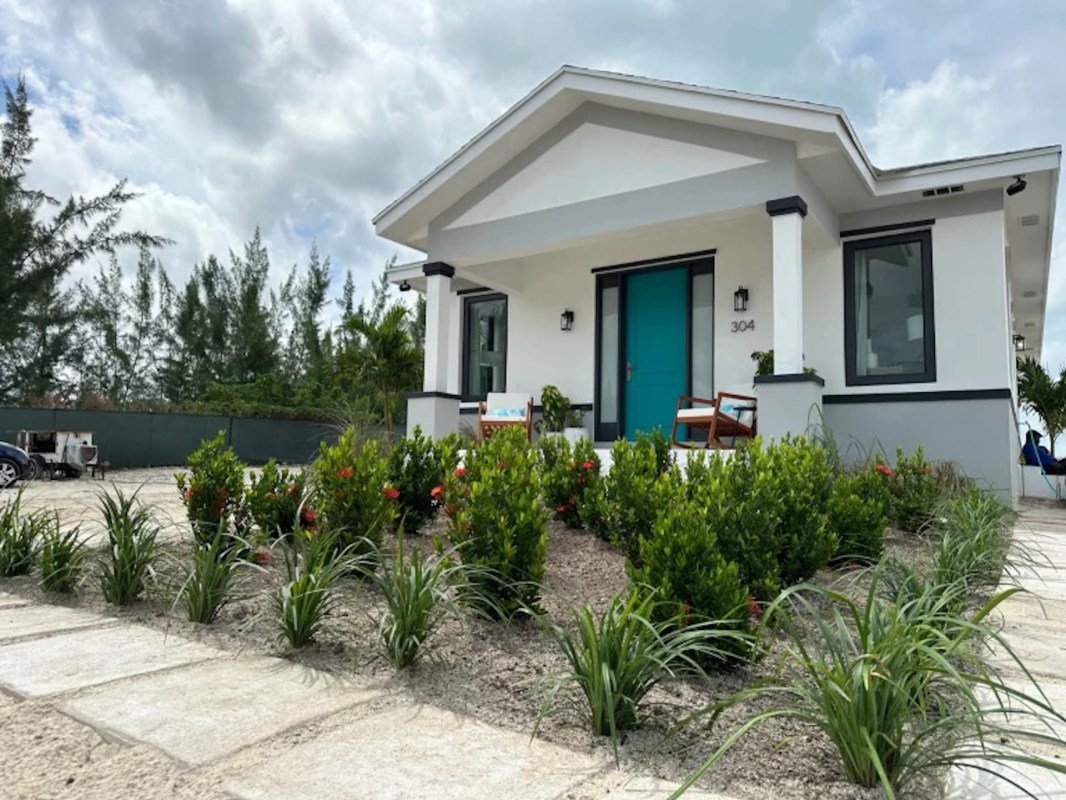Partanna Global, a manufacturer that touts "carbon-negative concrete," has just unveiled a climate-resilient prototype house that claims to remove carbon straight from the air — just like trees do.
Built in the Bahamas, this first-of-its-kind home offers a glimpse into how future construction could benefit the planet rather than pollute it.
In the United States alone, new home construction is responsible for the release of 50 million tons of carbon into the air every year, according to the Rocky Mountain Institute. (That's the same amount as 138 natural gas-powered plants.) That's because traditional concrete is made with water, aggregates like sand, and cement, the latter of which emits significant amounts of carbon during production.
Partanna Global's concrete substitute swaps these materials for upcycled brine and steel slag, which, when mixed, reportedly generate compounds that capture carbon dioxide instead. The Bahamas is an ideal place to unveil this new prototype, as brine is in no short supply for island communities facing rising sea levels.
Partanna calculates that its 1,250-square-foot home will absorb 182 metric tons (about 200 U.S. tons) of carbon over its lifetime, which is the same amount as 5,200 mature trees, according to Architectural Digest.
By reinventing household materials to absorb pollution, Partanna's development could empower laypeople to reduce their environmental impact while cutting costs.
Building small or avoiding construction altogether may be best for Mother Earth, according to many environmentalists and sustainability experts. But innovations like Partanna's carbon-capturing concrete provide hopeful signs that one day homes could heal our planet at little or no extra cost to occupants.
For island residents facing rising seas, that future can't come soon enough.
"Standing on the forefront of climate peril, we Bahamians have always been bound by resilience and innovation," said Philip E. Davis, Prime Minister of the Commonwealth of the Bahamas, said in a statement published by World Cement. "Today, as we unveil the world's first carbon-negative concrete home right here in Nassau, it is a testament that the answers to our global crises often come from those most affected."
Partanna co-founder Rick Fox called the Bahamas prototype "the answer" for linking sustainable development with pollution prevention.
"The Bahamas, having experienced the devastation of Hurricane Dorian firsthand, is the symbolic birthplace for our movement to change the way the world builds — for good," he said, per an Architectural Digest article reported by MSN.com.
This first home kicks off Partanna's plan to build 1,000 carbon-negative houses annually in partnership with the Bahamian government, announced in 2022. Offering resilient housing to storm-vulnerable communities is a model other coastal regions may soon follow.
Join our free newsletter for weekly updates on the coolest innovations improving our lives and saving our planet.









